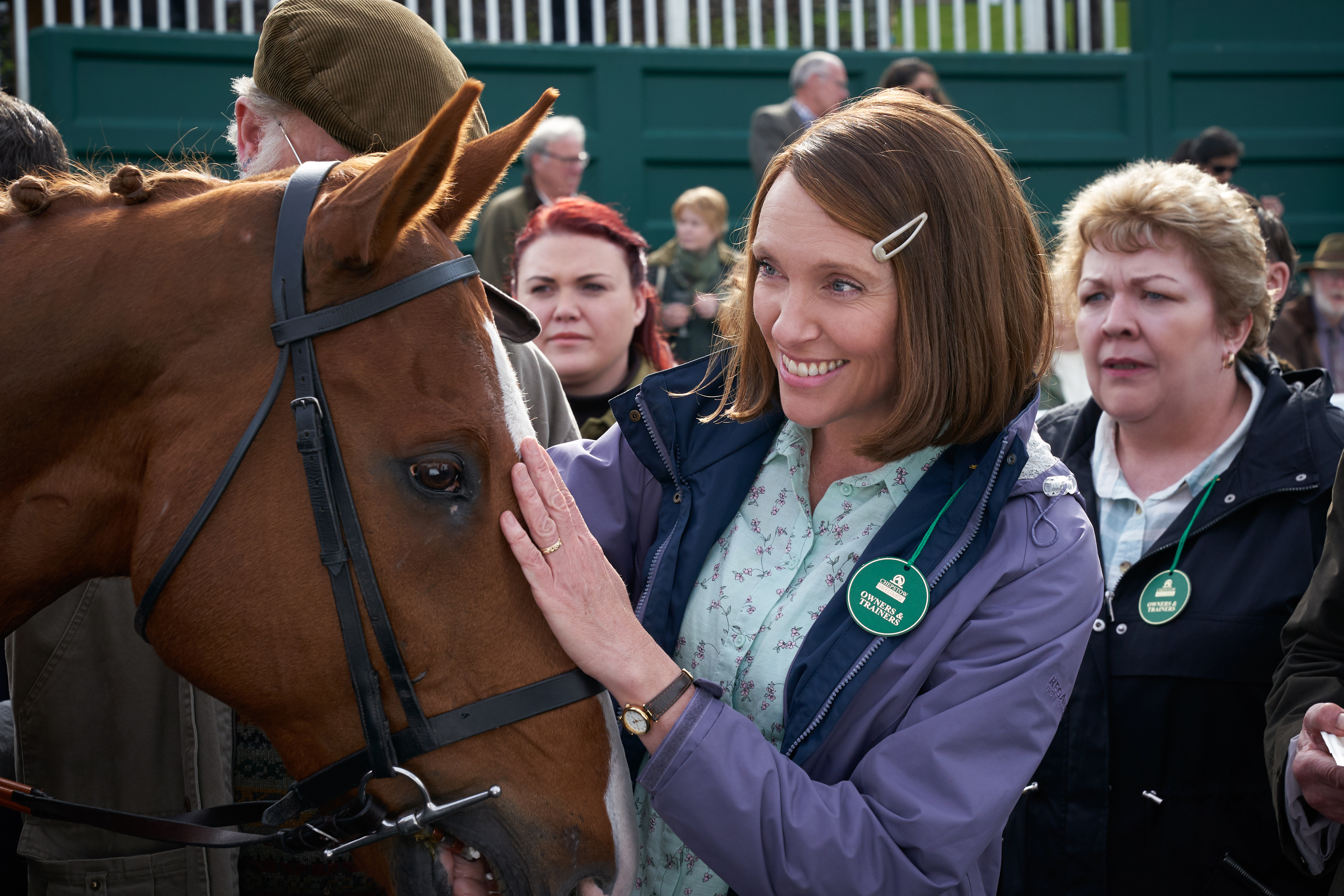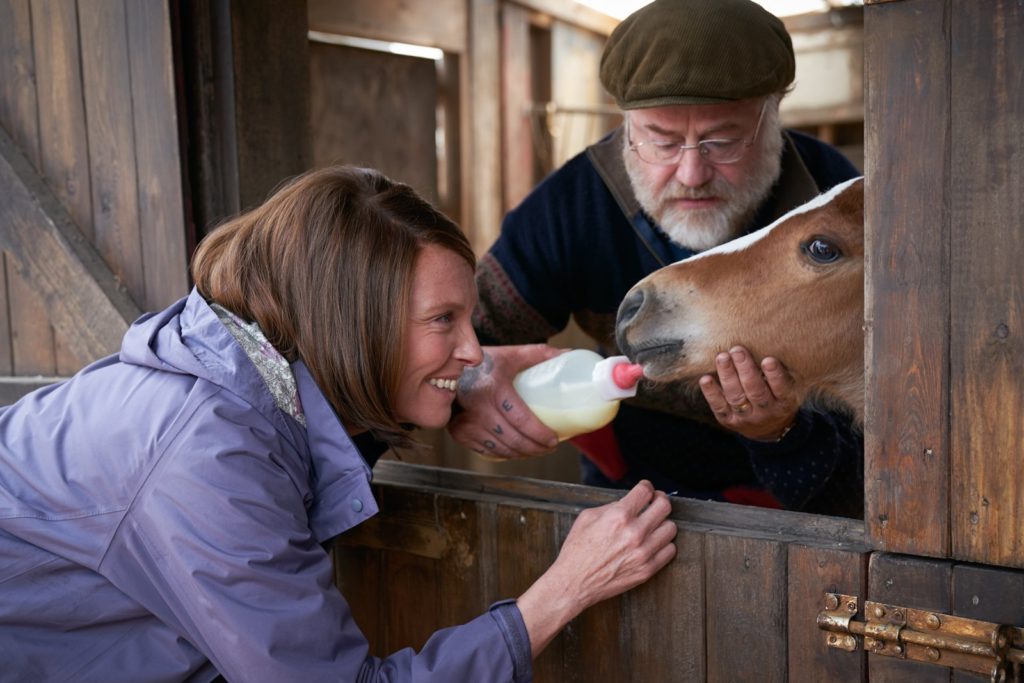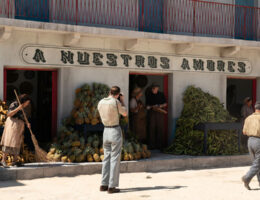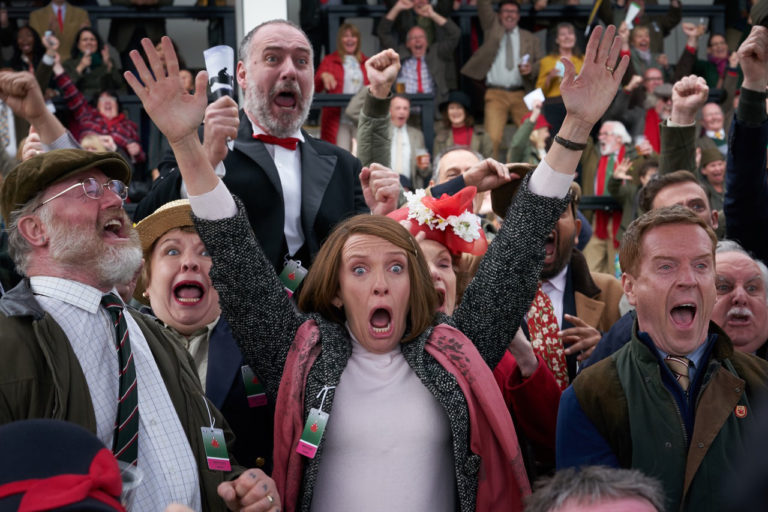Dream Horse (2021 | USA | 113 minutes | Euros Lyn)
Every so often, there is the so-called “feel good” film of the year that comes out seemingly designed to hit a specific narrative note. Frequently called the type of “crowd pleasing” story that will “make you stand up and cheer” as well as a litany of other clichés, these films are a dime a dozen.
Such is the case with Dream Horse, an often charming film that never makes the most of a rich story it is supposedly telling. It is only a supposed telling as it is primarily built around, at best, shallow re-creations, and, at worst, an active jettisoning of what should have been its most compelling aspects.
If ever there was a film that sanded off the rougher and more interesting edges of its original story, it would be one like Dream Horse. Based on the real-life story of the “working class horse” from Wales who would take on the wealthy owned racehorses and win, it is a movie that is inferior to its illuminating inspirations.
What makes it all the more regrettable is that the true story was already captured in brilliant detail in the documentary Dark Horse from 2015. It told the story not just more authentically, but more compellingly. Obviously, a dramatization must streamline and change things in order to move along with a plot without assistance from interview subjects. What it needn’t do is obfuscate the full context, both historical and personal, that underpins the narrative.
The documentary highlights the economic and sociological conditions that inform the sport of horse racing. Perhaps most importantly, it offers a far deeper look at how a ragtag group of outsiders were brought together to compete in an elitist game that they never would have had a chance to participate in if they hadn’t united.

That is because they formed a “syndicate” to pool their limited resources to go head-to-head with the wealthy owners who could bankroll a whole group of horses without a second thought while they had to scrape together just to have one. That one horse became fittingly known as “Dream Alliance” and would go on to win races when no one expected he could.
Novice breeder Janet Vokes, played in the fictional film by Toni Collette, initially had the idea to try to compete in the exclusive sport after overhearing a conversation while working as a barmaid at a local pub. Collette is giving it her all, with an accent and demeanor that is authentic without ever being imitation to instill her character with a real heart. All the cast is charming and committed, they just are doomed to push back against a shallow script.
The documentary succeeded by showing more fully and honestly how much the odds were stacked against the unlikely alliance. This was not just in the sport itself, but in the society they were living. It gives more of a hint of the class hostility and inequality they were up against. It further contextualized the time period when in retaliation for labor organizing and going on strike, all the area mines that were people’s sole means of support were shut down. It demonstrates how the struggles were not just about the contest of horse racing, but about poor people being kept in their place. This manifests in implicit and explicit treatment towards the group, even as they are winning.
Not only is almost none of that seen in Dream Horse, it is sidelined for a paint-by-numbers and rote retelling of a story that was already interesting enough on its own. The story is uninterested in these elements and yet struggles to find anything substantially interesting to replace them. The result is an empty shell of the fully alive story. This means the subtlety and intrigue of the story is pushed down, requiring overcompensation with increasing exaggerations.
Nowhere is this more clear than when Dream Alliance is feared to be fatally injured. The documentary makes use of the real footage, which is more terrifying because of how his injury seemingly came from just a small misstep. The dramatization instead frames the injury with a detached hand, even directly obstructing what actually happened to create a forced sense of tension. It nearly loses itself in melodrama as it paints with the broadest strokes.

The subsequent journey back to recovery is more realistic and measured in the documentary, allowing the emotions to be felt more fully. The film just rushes past all that, seemingly out of fear that any conflict would ruin the “feel good” emotions. The result is that the film cheapens itself by playing it safe and going through the motions without emotion underpinning it.
In the film’s defense, fictionalized tellings of real-life stories are frequently a mixed bag. There is a misconception that true stories are easy to tell since you are just taking an existing story and putting it on the screen without any real work. However, there is genuine work required to translate a complicated real-life story into a cleanly cohesive dramatization. Unfortunately, Dream Horse loses much of what made the story interesting by becoming too clean, too clear cut in its construction.
As the vastly superior documentary notes, the group “broke the mold” by taking on the wealthy owners of the sport. That is why it is a shame that a film meant to capture their achievements not only doesn’t break any molds, it actually forces the story into one. The documentary offers a more lived-in and comprehensive portrait of the community impacted by the crisis, so if you want to see the best version of this story, best go hear it from the people themselves.
Dream Horse is available in theaters starting May 21 and on VOD starting June 11. Photos courtesy of Bleecker Street.




